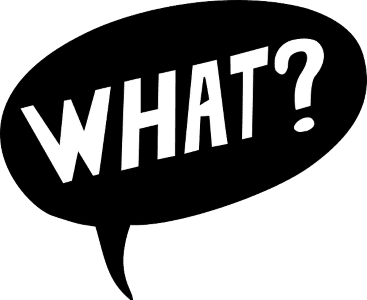Asking questions is an important part of any conversation, regardless of the language. Questions can help you learn more about a topic, understand someone’s speech, or find out more information. Asking questions in a foreign language can be intimidating, but it is a great way to practice the language. Let’s look at some useful vocabulary and examples on how to say “what” in French.
Que vs. Qu’est-ce que = “What” in French?
The most common way, although not the only one, to ask a question that starts with “what” in French is using the interrogative “que” (pronounced / kə/) or “qu’est-ce que” (pronounced /kes-kə/).
For example, to say “what is it?” in French, we say “Qu’est-ce que c’est?” or “C’est quoi?” where “c’est” means “it is.” We will discuss the use of “quoi?” meaning “what” in the next section of this article. Here are more examples:
| Que pensez-vous? Qu’est-ce que vous pensez? | What do you think? |
| Qu’aime t-il faire? Qu’est-ce qu’il aime faire ? | What does he like to do? |
| Qu’as-tu dit? Qu’est-ce que tu as dit? | What did you say? |
Notice that the form “qu’est-ce que” /kes-kə/ is considered a longer form that is more formal and polite than “que.” Notice also that the subject always precedes the verb when “qu’est-ce que” is used.
Que vs Quoi = “What” in French?
The interrogative “quoi” (what) is often used in familiar language, for example:
| C’est quoi? | What is this? |
| Tu fais quoi? | What are you doing? |
Another important use of the interrogative “quoi” (what) is when a preposition is used with the verb. In this case, “quoi” is used instead of “que,” for example:
| De quoi parles-tu? | What are you talking about? |
| En quoi pouvez-vous m’aider? | In what can you help me? |
Que vs Quel(le)(s) = “What” or “Which”?
“Que” and “quoi” are not the only interrogatives that are used to ask a question that starts with “what” in French. Depending on the context, “quel” (which) is used instead in some other cases, especially when used with nouns.
The interrogative adjective “quel” has four forms depending on their gender and number:
- “quel” (masculine singular),
- “quelle” (feminine singular),
- “quels” (masculine plural), and
- “quelles” (feminine plural).
So, when to use “quel” or “que” to mean “what”?
First of all, “quel” in French literally means “which” or “which one.”
| Quel livre est le tien ? | Which book is yours? |
| Quelle ville est plus belle ? | Which city is more beautiful? |
So, if you are asking a question that explicitly asks to choose or identify something from a larger group, you likely should use “quel.” For example:
Sometimes the question implies choice from a group of options but doesn’t state that explicitly. For example, to say “What’s your name?” or “What’s your address?” in French, we use “quel” instead of “que”:
| Quel est ton nom? | What is your name? |
| Quelle est votre adresse? | What is your address? |
In general, “que” is often used with verbs or to ask about the essence of a noun.
On the other hand, “quel(le)(s)” is preferred when precision is required in choosing between many options, even if that choice is implicit, as in “What’s your name?” (Which is your name among all the possible names?) or “What’s your address?” (Which is your address among all the possible addresses?)
Comment = “How or “What” in French?
This takes us to the question: How to say what’s your name in French? Perhaps one of the first you’ve learned when you started studying French, that is, “Comment t’appelles tu?” which may be more familiar to you than “Quel est ton nom?”
So, what does “Comment t’appelles tu?” actually mean?
First of all, “comment” means “how,” not “what.” And “appelles” is the second-person conjugation (“tu” form) of the verb “appeler.” The combined “te appelles” means “you call yourself.” Check the lesson on reflexive verbs and pronouns.
Therefore, “Comment t’appelles tu?” literally means “How do you call yourself?” It is not how you would say it in English, but that’s how it works in French.
How to say “What’s up?” in French
There are many ways to say “What’s up?” or “What’s going on?” in French. These range from less formal to very informal and vary in popularity, such as:
| Quoi de neuf? | Qu’est-ce qui se passe? |
| Ça va? | Ça roule? |
| Qu’est-ce qu’il y a? | Ça gaze? |


